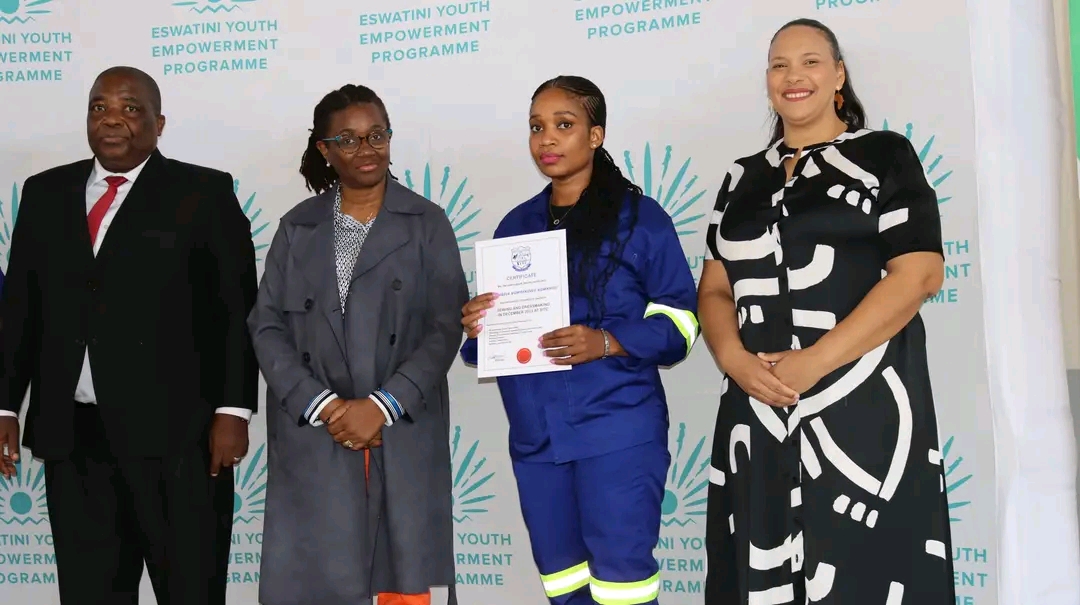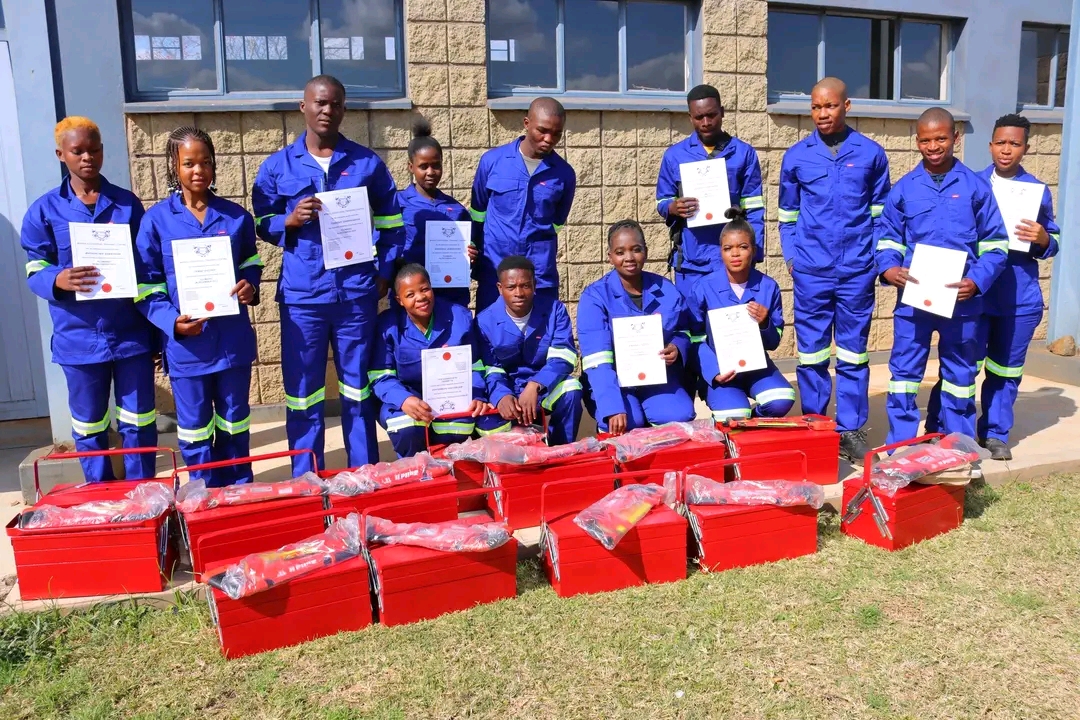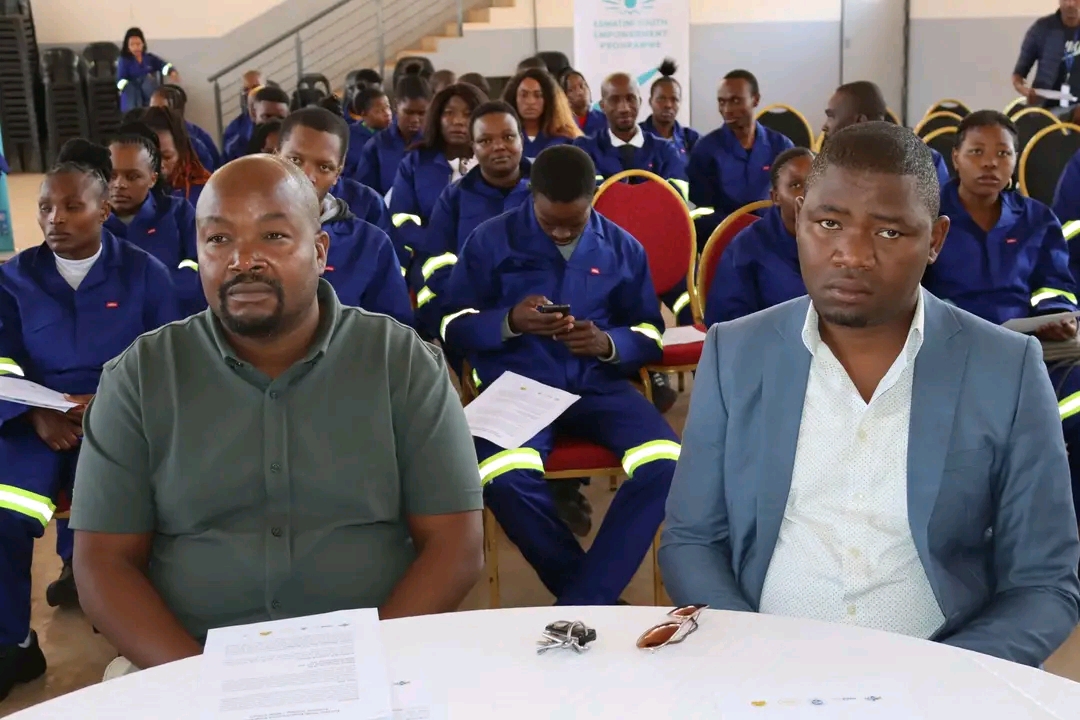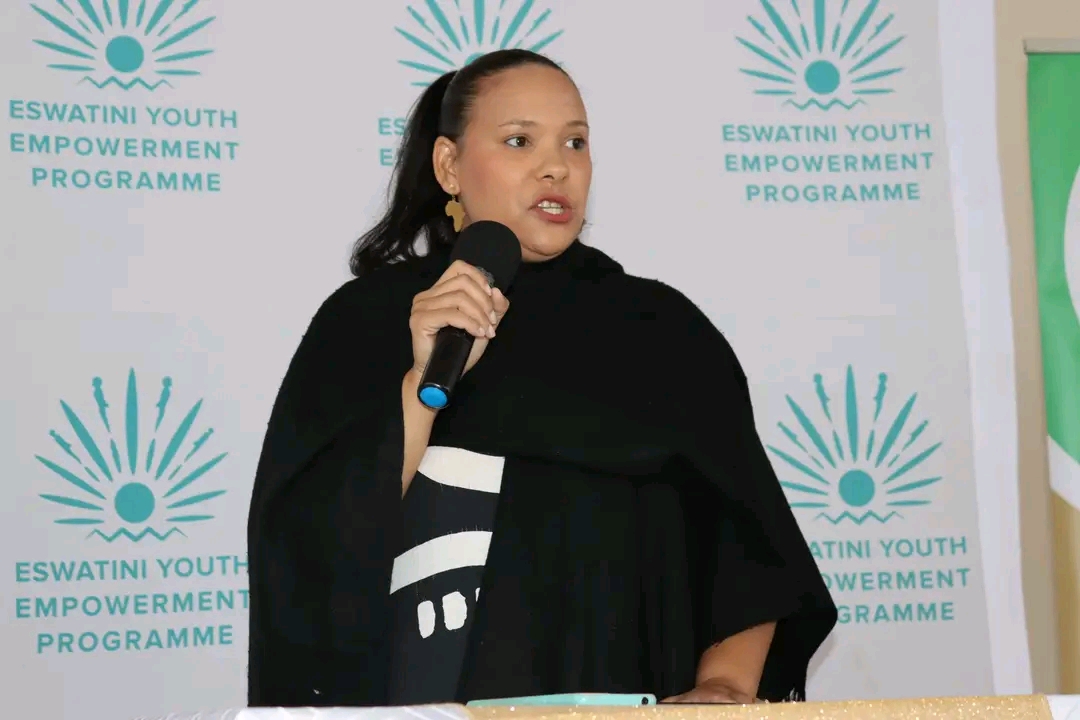By Ntonhle Mzileni
MBABANE – The Eswatini Youth Empowerment Programme (EYEP) has successfully concluded its first cohort of Artisanal Skills Training, marking a significant milestone for 81 young individuals from Siteki and surrounding areas in the Lubombo Region.

The graduation ceremony was held on Thursday, July 25, 2024 at Siteki Community Hall. According to information from UNDP, the graduation marked the completion of a three-month training period in various skilled trades, including upholstery, sewing, welding, building, electrical installation, and plumbing.

Participants received starter kits aimed at helping them launch their businesses or during internships to further enhance their skills. The initiative targeted unemployed youth under 35, with participants selected from a competitive pool of 481 applicants.

The training was a collaborative effort involving the Siteki Town Council (STC), Siteki Industrial Training Centre (SITC), and Mpaka Vocational Training Centre, under the Ministry of Education and Training, with the support from the United Nations Development Programme (UNDP).

UNDP Deputy Resident Representative, Nessie Golakai-Gould, revealed that the programme intends to introduce a third pillar focusing on young agri-preneurs, in addition to the two EYEP pillars which are the graduate placement and artisanal skills training.
“This new focus aims to help improve the skills and capacities of young people in the agricultural sector to help Eswatini to not just feed itself but to also provide food for the rest of the continent,” Golakai-Gould said.
Key partners, including the Government, PSPF, CONCO, MTN, and the Construction Industry Council were recognised for their contributions to the EYEP. Golakai-Gould pointed out that the Government has been instrumental in providing the majority of the resources for implementing EYEP.

Siteki Deputy Mayor, Lesley Way, emphasised the program’s potential impact in combating poverty and youth unemployment, stating, “As we witnessed the transformation of these young talented individuals into skilled artisans, we also recognise the profound impact this program will have.”
Participants expressed gratitude for the comprehensive support received during the training, including food, transport, and protective clothing. Winile Vilane, a participant, shared that their vision was to establish a workshop at Lonhlupheko after being introduced to upholstery through the program.




